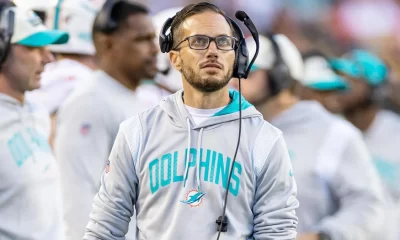Autotech Ventures will use its newly closed $230 million fund to expand beyond its foundation of early-stage ground transportation startups and invest in what the firm believes are the next big opportunities in automotive and mobility.
Fintech, logistics, supply chain and the circular economy are at the top of the list.
The $230 million fund, its third since launching in 2017, will be used to invest in seed through Series C mobility-related startups, according to the company. A mixture of financial and corporate LPs, including Allison Transmission, American Axle, Iochpe-Maxion and Shell participated in the fund.
“We’re still a ground transportation-focused firm and we have a very similar strategy [with this fund],” Alexei Andreev, Autotech Ventures managing director told TechCrunch. “On a high-level, it’s same as Fund 1 and Fund 2. However, one of the fastest areas of growth is SaaS-enabled fintech. Auto commerce is inefficient and there are large pockets of profit to capture.”
The firm is particularly interested in transportation-related fintech ventures that are poised to grow during a recession.
“We made a prediction that sooner or later there will be a recession and we identified areas that benefit when the economy softens, Andreev said, noting that this latest fund invested in Yendo, a Dallas-based startup (formerly known as Otto) that lets customers borrow against their vehicles at the same interest rate as standard credit cards.
Autotech Ventures’ previous fintech investments include U.K.-based buy now, pay later startup Bumper and Carpay, a buy here, pay here loan servicing SaaS platform for car dealers.
Andreev said the firm is also investigating investment opportunities in the circular economy, a nascent industry focused on finding ways to reuse materials and products. Circular economy startups have garnered an increasing amount of attention and investment as automakers transition away from gas-powered vehicles and towards EVs.
Autotech Ventures is also cautiously wading into generative AI, although Andreev was quick to note that the company has not made any investments in that area.
Autotech has more than $500 million under management and has invested in more than 40 companies.
Some of the firm’s investments include computer vision startup DeepScale (which was acquired by Tesla), Lyft, used vehicle marketplace operator Frontier Car Group, Drover, Outdoorsy, Swvl, parking app SpotHero and Xnor.ai, which Apple acquired in January 2020. Five of those startups have gone public, including indie Semiconductor and Volta Charging.
More TechCrunch

 Sports2 years ago
Sports2 years ago
 Entertainment2 years ago
Entertainment2 years ago
 News2 years ago
News2 years ago
 News2 years ago
News2 years ago
 Florida2 years ago
Florida2 years ago
 Entertainment2 years ago
Entertainment2 years ago
 Florida2 years ago
Florida2 years ago
 Tech3 years ago
Tech3 years ago



